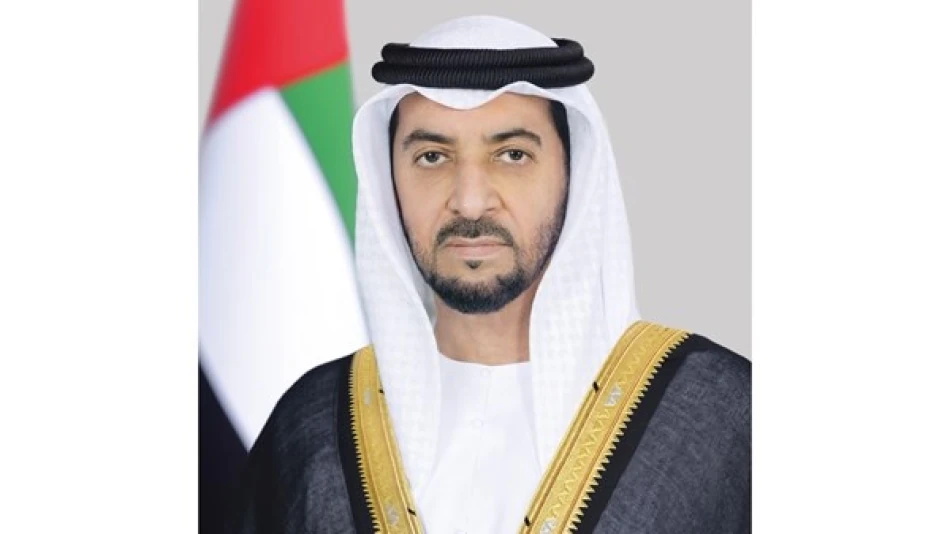
Commemorating the UAE's Founding Vision: Hamdan bin Zayed Reflects on the Enduring National Moment
UAE Leadership Reaffirms National Unity as Federation Marks Key Anniversary
As the United Arab Emirates celebrates Union Pledge Day, senior leadership is doubling down on the founding principles that transformed seven separate emirates into one of the Middle East's most stable and prosperous nations. The commemoration highlights how the UAE's federal structure continues to serve as a model for regional cooperation and economic integration more than five decades after its establishment.
Founding Vision Remains Central to Modern UAE
Sheikh Hamdan bin Zayed Al Nahyan, the Ruler's Representative in Al Dhafra Region, emphasized that Union Pledge Day represents "an immortal national moment" for reflecting on the founding fathers' vision. Writing on social media platform X, he described how the UAE's founders "laid the foundations of a towering union built on determination and loyalty."
This messaging underscores how the UAE's leadership continues to anchor its legitimacy in the original federal compact of 1971, when the seven emirates agreed to pool sovereignty while maintaining individual identities. The emphasis on "determination and loyalty" reflects the pragmatic approach that has allowed the federation to weather regional upheavals while other Arab nations faced fragmentation.
Federal Model Proves Resilient Amid Regional Turbulence
The UAE's federal structure has demonstrated remarkable durability compared to other Middle Eastern experiments in unity. While the United Arab Republic between Egypt and Syria collapsed after just three years, and the Gulf Cooperation Council remains largely consultative, the UAE has evolved into a genuinely integrated economic and political entity.
Sheikh Hamdan's call for "renewing the covenant with the nation" comes as the UAE faces new challenges, from energy transition pressures to geopolitical tensions with Iran. The federation's ability to present a unified front while allowing individual emirates to pursue specialized economic strategies—Dubai's focus on trade and finance, Abu Dhabi's energy leadership, Sharjah's cultural emphasis—has become a key competitive advantage.
Economic Integration Drives Political Unity
The UAE's success in maintaining federal cohesion stems largely from economic interdependence. Unlike other federations where regions compete for resources, the UAE's emirates have developed complementary economies that reinforce political unity. Abu Dhabi's oil wealth subsidizes federal infrastructure, while Dubai's commercial expertise generates non-oil revenue streams that benefit the entire federation.
This economic logic has practical implications for investors and businesses operating in the region. The UAE's federal stability reduces regulatory uncertainty and provides confidence that contracts and investments will be honored across emirate boundaries. For multinational corporations, this means the UAE can serve as a unified platform for regional operations rather than requiring separate strategies for each emirate.
Regional Leadership Through Federal Example
The UAE's emphasis on federal unity also serves broader regional ambitions. As the country positions itself as a mediator in Middle Eastern conflicts and a bridge between East and West, internal cohesion becomes a source of soft power. The message that diverse entities can cooperate successfully resonates with international partners seeking stable, predictable relationships in a volatile region.
The timing of these unity messages is significant as the UAE continues expanding its global footprint through initiatives like the Abraham Accords with Israel and deepening partnerships with Asian economies. A unified federal structure provides the institutional framework necessary to execute complex international strategies that require sustained commitment across multiple government levels.
Most Viewed News

 Layla Al Mansoori
Layla Al Mansoori






